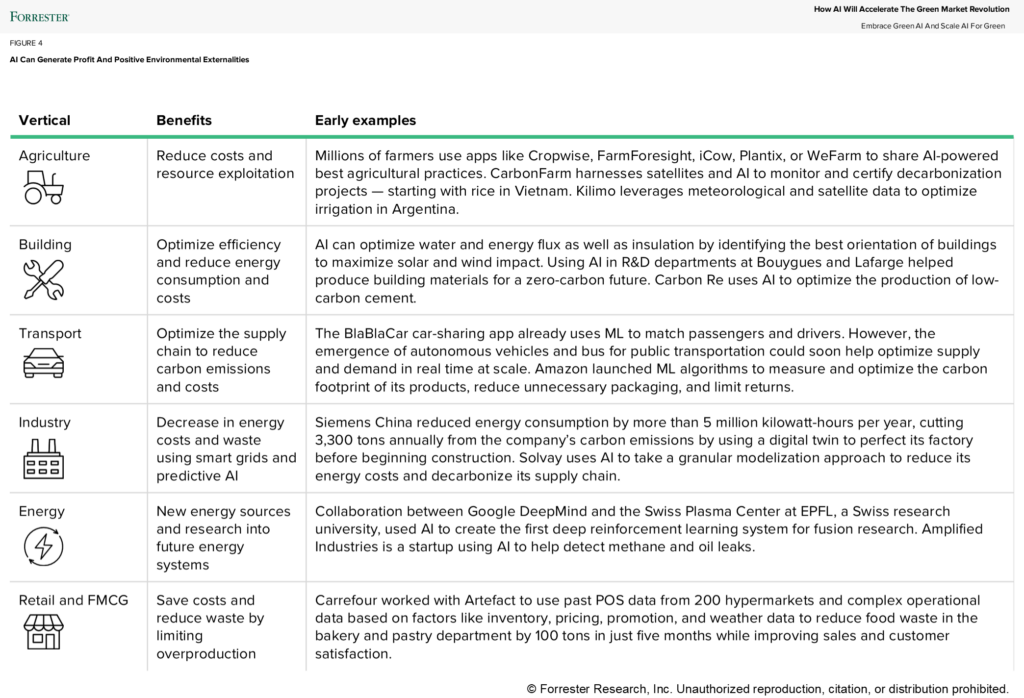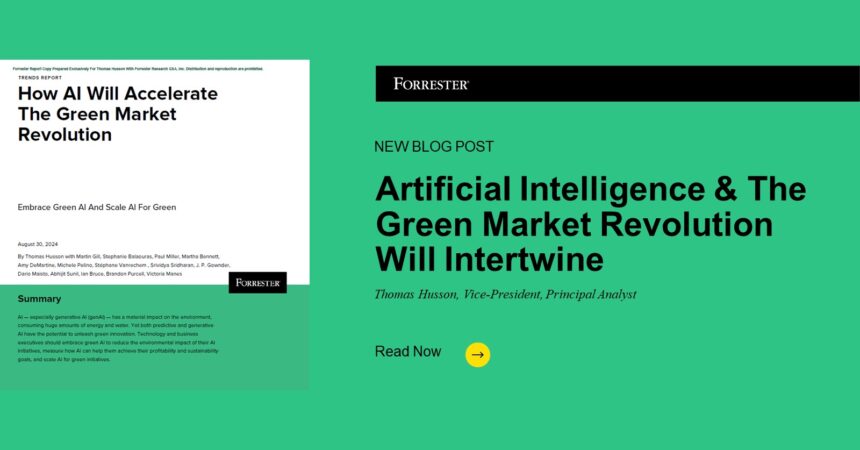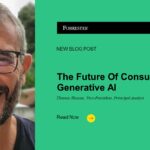The futures of AI and the green market revolution are intimately linked; whether we want it or not, both will inevitably and radically transform societies and economies and become invisibly embedded into our daily lives. While AI has huge potential to mitigate the environmental crisis, today’s AI tech — especially generative AI (genAI) — has a huge impact on climate change and water resources.
Microsoft’s greenhouse gas (GHG) emissions jumped by nearly 30% from 2020 to 2023; Google’s have increased by 50% over the past five years. This is in large part due to the construction of data centers that host AI and cloud computing systems. The International Energy Agency anticipates that global electricity demand for data centers, driven by AI growth, will double between 2022 and 2026, at which point it will roughly equal the electricity consumption of a country like Germany. Moving forward, genAI democratization will explode energy consumption and drain water resources, while planetary boundaries will limit AI growth.
Greater AI energy efficiency will increase AI usage. AI will become more energy-efficient over time. Small language models will emerge for specific tasks and functions, improving AI efficiency. Edge AI embedded into smartphones and PCs with neural engine chips will consume less energy than cloud infrastructure. Despite energy optimization, the massive democratization of genAI on billions of devices will increase overall consumption. According to Sasha Luccioni, “The energy required for inferring models will be a lot more significant than for training models.”
Emerging AI technology brings both environmental risk and opportunity. “Technology is neither good nor bad; nor is it neutral” said Melvin Kranzberg. Acknowledging this statement is the first step to a responsible and ethical technology strategy. Emerging AI tech brings both environmental risk and opportunity. Given AI’s negative impact on electricity and water consumption, its capacity to have a positive impact on society and the environment depends on what we use it for. GenAI can create fake news videos at scale but can also help scientists at the Intergovernmental Panel on Climate Change (IPCC) accelerate their research. Business and tech leaders must weigh genAI’s potential against its environmental impact.
AI Can Help Combine Profit And Sustainability Across Industries
Firms investing in AI for green projects need to ensure that AI will contribute to both their sustainability plans and their bottom line. AI can improve business performance and reduce the impact on planet boundaries even in the most polluting industries. We have identified many use cases and examples, some of them summarized by verticals:

Get Ready To Scale Green AI And AI For Green
Firms can lower their costs and the environmental impact of their AI usage by embracing green AI. They can also leverage AI as an innovative tool to maximize profit while scaling AI for green — the positive externalities that AI can have on the environment.
Embrace Green AI
CIOs and other technology leaders should work closely with sustainability and finance teams to help their organizations reduce the environmental impact of AI and genAI. Technology teams should:
- Measure the environmental impact of AI activities
- Establish transparency and accountability with a cloud sustainability goal
- Use AI when it’s needed, not because it’s there
- Focus on efficient hardware and low-carbon regions
- Accelerate green technology innovation in data centers
Prioritize Profitable And Sustainable AI Use Cases
The opportunity is not just to reduce costs by optimizing the use of green AI, but also to implement AI use cases that generate new business opportunities. Business leaders should work closely with finance and sustainability teams to implement profitable and sustainable AI use cases. They should leverage AI tools to:
- Correlate sustainability and financial performance
- Innovate sustainable products and solutions with R&D and product teams
- Optimize their green marketing mix
Clients who want to better understand the complex relationships between AI and environmental sustainability can access our brand new report, “How AI Will Accelerate The Green Market Revolution,” and schedule a conversation with me to go into the details of what it means for them.








